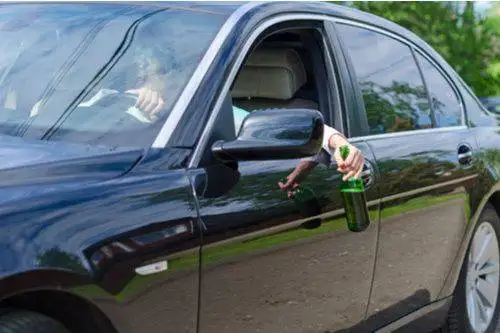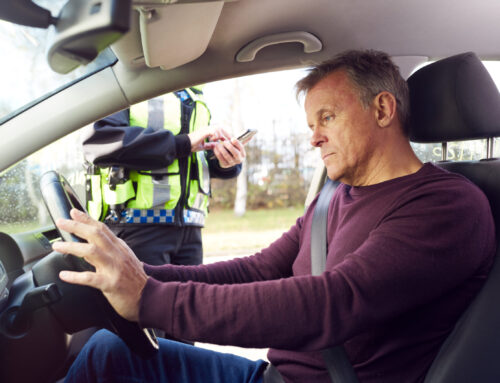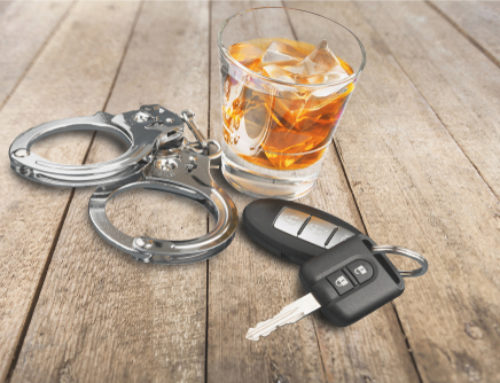What does it mean to be “driving under the influence”? To most people, it simply means drinking and driving. But, if you have been charged with driving under the influence (DUI) in Arizona, you need to understand what constitutes clearly – and what does not constitute – a criminal act under Arizona law. In many cases, it will be possible to avoid a conviction by demonstrating that Arizona’s DUI law does not apply to what you were doing when you were arrested—and this includes operating something other than a “vehicle” as defined by law.
What Constitutes Driving Under the Influence (DUI) in Arizona?
Arizona’s prohibition against driving under the influence appears in Section 28-1381 of the Arizona Revised Statutes. Under Section 28-1381.A:
“It is unlawful for a person to drive or be in actual physical control of a vehicle in this state under . . . [w]hile under the influence of intoxicating liquor, any drug, a vapor releasing substance containing a toxic substance or any combination of liquor, drugs or vapor releasing substances if the person is impaired to the slightest degree. . . .”
Section 28-1381. It also makes it an offense to “drive or be in actual physical control of a vehicle” with a blood alcohol concentration (BAC) of 0.08 or above (regardless of the level of impairment) or while under the influence of drugs.
While there are many complexities to Arizona’s DUI statute, one aspect that may seem fairly straightforward is its use of the term “vehicle.” Everyone knows what a vehicle is, right? As it turns out, this is not the case, and even police officers often do not have a clear understanding of what constitutes a vehicle for purposes of arresting someone for DUI.
What Constitutes a “Vehicle” Under Arizona’s DUI Law?
The term “vehicle” is defined in Section 28-101 of the Arizona Revised Statutes. Specifically, Section 28-101.77 states that a vehicle is any “device in, on or by which a person or property is or may be transported or drawn on a public highway.” Specifically excluded from the definition of a vehicle are:
- Electric bicycles, electric miniature scooters, electric standup scooters, and devices moved by human power;
- Devices used exclusively on stationary rails or tracks;
- Personal delivery devices;
- Scrap vehicles; and,
- Personal mobile cargo carrying devices.
Section 28-101 further clarifies that all “motor vehicles” qualify as “vehicles” for purposes of Arizona’s DUI law. A motor vehicle can be either:
- A self-propelled vehicle; or,
- “[A] vehicle that is operated on the highways of this state and that is propelled by the use of motor vehicle fuel.”
In other words, cars, trucks, and SUVs are “motor vehicles” (and therefore also “vehicles”), but electric bicycles and scooters are not. Also excluded from the definition of motor vehicles are:
- Motorized wheelchairs;
- Electric personal assistive mobility devices; and,
- Motorized skateboards.
What about golf carts? Section 28-101.45 calls these “neighborhood electric vehicles” and defines them as “a self-propelled electrically powered motor vehicle.” Thus, as a type of “self-propelled vehicle,” a golf cart is considered a “motor vehicle” (and thus a “vehicle”) for purposes of Arizona’s DUI law.
How Do You Defend Against a DUI Charge if You Were Not Driving a “Vehicle”?
Let’s say you were arrested for DUI, but you were not driving or in actual physical control of a “vehicle.” How can you prove this and avoid an unwarranted DUI conviction?
The first place to look is your DUI citation. There is a section labeled “Vehicle,” where the arresting officer would normally record the year, color, make, model, and license plate of your car, truck, or SUV. If you were operating something else (such as an electric scooter or wheelchair), this should be noted in the “Vehicle” section instead.
If the “Vehicle” section of your DUI citation is unclear or incomplete, then you may need to find other evidence that you can present in your defense. Frequently, this will involve presenting the arresting officer’s testimony or other witnesses (i.e., friends or family members who were with you when you got arrested). In any case, the prosecution has the burden of proving your guilt beyond a reasonable doubt; and, if it is not clear that you were behind the wheel of a “vehicle” as defined by Arizona law, then you do not deserve to be convicted of DUI.
What Defenses Can You Assert if You Were Driving a “Vehicle”?
Now, let’s say that you were arrested, and you were driving a vehicle (for example, let’s say you were driving a golf cart). What defenses can you use to fight your Arizona DUI charge?
There are numerous potential defenses to DUI charges under Arizona law. To determine what defenses you can assert in your case, it will be important for you to work closely with an experienced Phoenix DUI defense attorney. As a former judge with more than 40 years of experience defending clients against DUI charges in Arizona, defense attorney Mark Weingart has helped thousands of clients avoid conviction and secure reduced sentences by utilizing defenses including (but not limited to):
- DUI traffic stops made without reasonable suspicion;
- DUI arrests made without probable cause;
- Improper administration of field sobriety tests (FSTs);
- Inadequate or unreliable breath or blood test results; and,
- Not being in “actual physical control” of a vehicle.
Regardless of what you were driving when you got arrested, you need to speak with an experienced defense attorney if you face a DUI charge in Arizona. To schedule a free, no-obligation consultation at The Weingart Firm, contact us today.
Discuss Your Phoenix DUI Case with Former Judge and Certified Criminal Law Specialist Mark Weingart
Are you facing a DUI charge in Phoenix? If so, we encourage you to promptly contact our DUI defense attorney to promptly arrange a free, no-obligation consultation with the former judge and certified criminal law specialist Mark Weingart. To discuss your DUI defense in confidence, call 480-405-7922 or request a callback online now.






